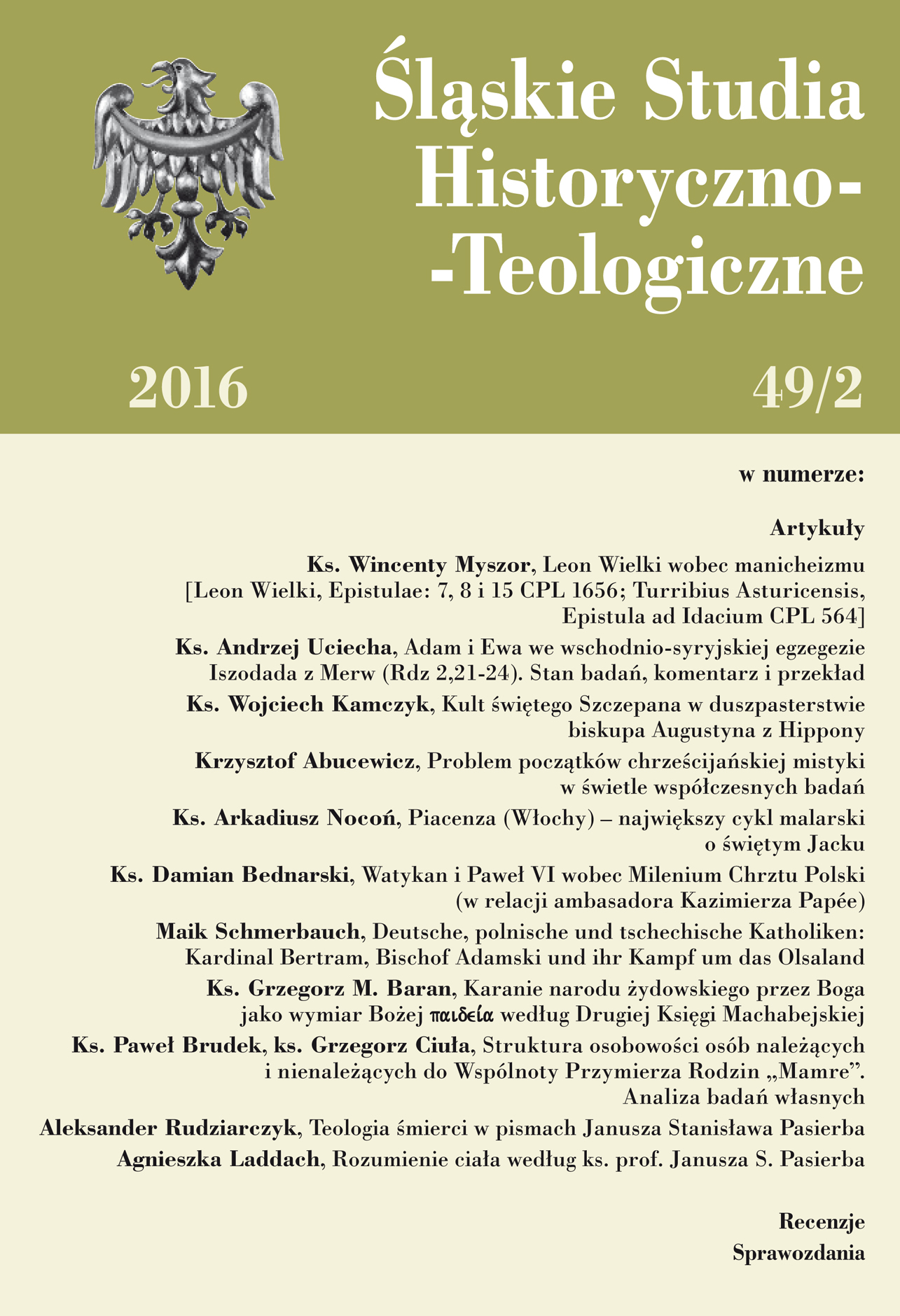Adam i Ewa we wschodnio-syryjskiej egzegezie Iszodada z Merw (Rdz 2,21-24). Stan badań, komentarz i przekład
Adam and Eve in the East-Syriac Exegetical Tradition of Ishodad of Merv (Gen 2,21-24). Studies, Commentary and Translation
Author(s): Andrzej UciechaSubject(s): Christian Theology and Religion, Theology and Religion, Systematic Theology, Pastoral Theology
Published by: Księgarnia Świętego Jacka
Keywords: Ishodad of Merv; Nestorian exegesis; Syriac language; Eastern Christianity
Summary/Abstract: In his commentary on Genesis, Ishodad of Merv, while following the practice commonly used in the 8th and 9th century, adapts and compiles various exegetical texts. The work of this bishop and theologian, regarded by Nestorians as one of the most prominent, includes the fragments of the earlier studies of Syrian and Greek exegetes, especially those of Theodore of Mopsuestia, Ephrem the Syrian, Henana of Adiabene (+610), Dadisho Qatraya (7th century), Basil of Caesarea and John Chrysostom. Ishodad also uses Jewish exegesis of the time. His positive view of anthropological and social position of a woman is relative: Eve is no longer Adam’s slave, yet she does not have such authority as he does. She is and will remain only half of a man. They both constitute a whole, and to create such a whole, one needs the other.
Journal: Śląskie Studia Historyczno-Teologiczne
- Issue Year: 49/2016
- Issue No: 2
- Page Range: 302-310
- Page Count: 9
- Language: Polish

